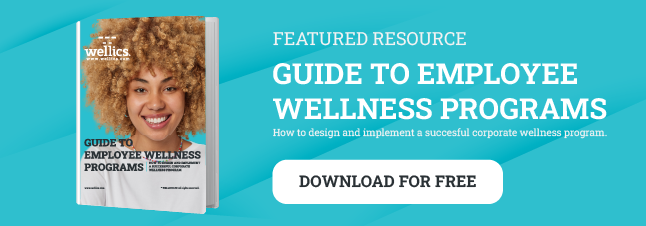In our modern world, we face relentless pressures and responsibilities. The value of self-care has surged to unprecedented levels because it becomes imperative to place self-care at the top of our priorities. International Self-Care Day is celebrated annually on July 24th as a poignant reminder of the profound value in devoting time and effort to our own personal care.
Self-Care Essentials: Unlocking the Key Components for Well-Being
Self-care can be defined as the intentional and conscious practice of nurturing and attending to one's own needs. It involves taking actions and making choices that promote overall well-being and contribute to a balanced and fulfilling life. Self-care encompasses various dimensions, including physical, emotional, mental, social, and spiritual aspects, all of which play a crucial role in our overall health and happiness.
Physical Self-Care:
Physical self-care involves taking care of our bodies to ensure optimal health and vitality. This includes engaging in regular exercise, getting sufficient restful sleep, eating a balanced diet, staying hydrated, and tending to our physical well-being. It also involves seeking medical care when needed and prioritizing activities that promote physical relaxation and rejuvenation.
Emotional and Mental Self-Care:
Emotional self-care focuses on acknowledging and addressing our emotional needs. It involves developing self-awareness, practicing self-compassion, and engaging in activities that promote emotional well-being, such as journaling, therapy, and spending time with loved ones. Mental self-care, on the other hand, emphasizes nurturing our mental health by engaging in activities that stimulate and challenge our minds, such as reading, learning new skills, or engaging in creative outlets.
Social and Spiritual Self-Care:
Social self-care emphasizes the importance of nurturing healthy relationships and connections with others. This involves setting boundaries, fostering supportive friendships, and engaging in activities that promote social connection and fulfilment. Spiritual self-care centres around nourishing our spiritual well-being, whatever that may mean to each individual. It can involve engaging in meditation, prayer, spending time in nature, or practicing gratitude.
Investing in Yourself: Exploring the Long-Term Benefits of Self-Care
Self-care is not a selfish act, but a necessary and vital component of a balanced and healthy life.
When we prioritize self-care, we recognize that our well-being matters and that taking care of ourselves is not only beneficial to us but also to those around us. Here's why self-care is so important:
Replenishing Energy: Life can be demanding, and we often find ourselves juggling multiple responsibilities and obligations. By engaging in self-care activities, we replenish our physical, mental, and emotional energy reserves. This helps us avoid burnout and exhaustion, enabling us to tackle challenges with renewed vitality and enthusiasm.
Reducing Stress: Chronic stress takes a toll on our overall well-being. Self-care provides an essential buffer against the stressors of daily life. By incorporating self-care practices into our routines, such as relaxation techniques, mindfulness exercises, or engaging in hobbies we enjoy, we can effectively manage stress levels. This, in turn, promotes a sense of calm and balance in our lives.
Enhancing Well-Being: Self-care is not just about addressing immediate needs; it is a holistic practice that nurtures our overall well-being. By prioritizing self-care, we attend to our physical, mental, and emotional health. Engaging in regular exercise, practicing self-reflection and self-compassion, and pursuing activities that bring us joy and fulfilment all contribute to our overall well-being.
Improved Relationships: When we take care of ourselves, we are better equipped to care for and nurture our relationships with others. By prioritizing self-care, we establish healthier boundaries, communicate our needs more effectively, and approach relationships with a greater sense of balance and fulfilment. Taking the time to care for ourselves allows us to show up as our best selves for those we care about.
Positive Outlook: Self-care practices have a direct impact on our mental and emotional state. Engaging in activities that bring us joy, practicing gratitude, and cultivating self-compassion can significantly improve our overall outlook on life. By investing in self-care, we foster a positive mindset, resilience, and a greater capacity to handle life's challenges with grace and optimism.
Embracing Self-Care as a Lifestyle: The Importance of Nurturing Yourself Daily
Incorporating self-care into our daily lives requires conscious effort and prioritization. It's not always easy, but the benefits make it well worth the investment. Here are some key steps to effectively integrate self-care into our routines:
- Creating Space for Ourselves: Despite the demands of work, family and other responsibilities, it is important to carve out a time for self-care. Whether it's starting your day with a few moments of mindfulness, taking a lunch break to go for a walk or winding down in the evening with a relaxing activity, intentionally create space for yourself in your schedule.
- Setting Boundaries: Boundaries play a crucial role in safeguarding our well-being. Learn to say "no" to activities or commitments that drain your energy or overwhelm you. Prioritize self-care by protecting your time and energy, allowing yourself the space to recharge and focus on what truly matters.
- Making Self-Care Non-Negotiable: Treat self-care as a non-negotiable aspect of your daily routine, just like eating or sleeping. Recognize that self-care is not a luxury but a necessity for your overall health and happiness. By making it a priority, you send a clear message to yourself and others about the importance of taking care of your well-being.
- Customizing Self-Care Practices: Self-care is a deeply personal journey, and what works for one person may not work for another. Explore different self-care practices and identify what resonates with you. It could be engaging in physical activity, practicing meditation or mindfulness, journaling, pursuing a hobby, or simply spending quality time with loved ones. Find activities that nourish your mind, body, and soul.
- Integrating Self-Care in Small Ways: Incorporating self-care doesn't always require significant time commitments. Look for opportunities to infuse self-care into your daily activities. It could be listening to uplifting podcasts during your commute, practicing deep breathing exercises during stressful moments, or incorporating nutritious meals into your diet. Small acts of self-care throughout the day can have a cumulative positive impact on your well-being.
- Mindfulness and Reflection: Stay attuned to your needs and regularly assess how well you are incorporating self-care into your daily life. Practice mindfulness to check in with yourself and make adjustments as needed. Reflect on the impact that self-care has on your overall health and happiness, reinforcing the importance of making it a consistent practice.
Thriving Organizations: Incorporating Self-Care into Corporate Culture
In the dynamic of business, organizations are realizing that success is no longer solely dependent on financial performance and market dominance. Instead, it's becoming increasingly evident that employee well-being and happiness play a crucial role in achieving sustainable success. Thriving organizations are now actively embracing a culture of self-care as a key pillar of their corporate framework. By prioritizing their employees' physical and mental well-being, these companies are reaping the benefits of enhanced productivity, employee retention, and overall organizational growth.
The Importance of Self-Care in Corporate Culture
In this competitive landscape, employee burnout and stress have become prevalent challenges for organizations. Long working hours, high-pressure deadlines, and constant demands can take a toll on employees' physical and mental health, leading to decreased productivity and diminished job satisfaction. Recognizing this, thriving organizations are adopting a holistic approach to employee well-being. By incorporating self-care practices into their corporate culture, they create a supportive and nurturing environment where employees feel valued and encouraged to take care of themselves.
Enhancing Employee Retention and Engagement
A culture that prioritizes self-care sends a powerful message to employees – their well-being matters. This fosters a sense of loyalty and commitment among the workforce, resulting in higher employee retention rates. When employees feel genuinely cared for, they are more likely to be engaged and motivated in their roles, leading to improved performance and productivity. Moreover, an organizational culture that embraces self-care initiatives attracts top talent, as potential employees are drawn to companies that prioritize work-life balance and mental health.
Boosting Productivity and Creativity
Contrary to the belief that self-care can hinder productivity, research has shown that it actually boosts overall performance. When employees are encouraged to take breaks, engage in physical activities, and practice mindfulness, they return to their tasks with renewed focus and energy. Self-care practices also contribute to enhanced creativity and problem-solving abilities. By incorporating wellness programs, flexible work arrangements, and access to mental health resources, organizations are empowering their employees to unleash their full potential, leading to more innovative ideas and solutions.
Nurturing Positive Leadership
Leaders within thriving organizations play a crucial role in promoting a culture of self-care. When executives and managers actively prioritize their own well-being, they become role models for their teams. This sets a positive example and encourages employees to follow suit, creating a ripple effect of healthier habits throughout the organization. Supportive leaders who emphasize the importance of self-care not only foster a more harmonious work environment but also build trust and loyalty among their teams.
Τo integrate self-care into corporate culture, organizations are increasingly incorporating self-care practices into their wellbeing programs. These programs aim to provide employees with the tools, resources, and support they need to prioritize their wellbeing. Employee wellness programs have evolved from offering traditional healthcare benefits to embracing a more holistic approach that prioritizes the well-being of the workforce. Incorporating self-care into these programs has emerged as a powerful strategy to foster a healthier and more engaged workforce.
With the advancement of employee wellness platforms, organizations now have the perfect avenue to initiate self-care practices and empower their employees to take charge of their physical and mental health. These platforms act as centralized hubs where employees can easily access a variety of self-care resources and tools. From personalized wellness plans and stress management modules to virtual fitness classes and mindfulness exercises, these platforms cater to individual needs, preferences, and interests. By providing a one-stop-shop for self-care, organizations make it convenient for employees to prioritize their well-being amidst their busy work schedules.
How Advanced Wellness Platforms Revolutionize Self-Care in the Workplace
As we delve into the potential of employee wellness platforms in introducing self-care initiatives, we uncover the benefits they bring to both employees and the organization. From improved productivity and mental health support to enhanced engagement and reduced healthcare costs, the incorporation of self-care into employee wellness programs can create a positive and supportive workplace culture.
Accessible Resources for Self-Care
Employee wellness platforms act as centralized hubs where employees can easily access a variety of self-care resources and tools. From virtual fitness classes and meditation sessions to mental health support and stress management programs, these platforms offer a diverse range of resources tailored to individual needs. By providing a one-stop-shop for self-care, organizations make it convenient for employees to prioritize their well-being amidst their busy work schedules.
Personalized Wellness Plans
Employee wellness platforms often leverage data analytics and artificial intelligence to create personalized wellness plans for each individual. By analyzing data related to employees' health, preferences, and interests, the platforms can recommend tailored self-care practices to promote a healthier lifestyle. These personalized plans empower employees to make informed decisions about their well-being, leading to better engagement and adherence to wellness programs.
Encouragement through Gamification
Gamification is a powerful tool employed by employee wellness platforms to motivate employees to participate in self-care initiatives actively. By introducing friendly competitions, challenges, and rewards, the platforms create a sense of camaraderie and excitement among employees. Gamification not only enhances employee engagement with self-care practices but also fosters a positive and supportive workplace culture.
Real-Time Tracking and Progress Monitoring
Employee wellness platforms offer real-time tracking and progress monitoring features, allowing employees to monitor their self-care activities and see their improvement over time. By visualizing their progress, employees are encouraged to stay committed to their wellness goals and can celebrate their achievements along the way. The ability to track their self-care journey enhances employee motivation and accountability, contributing to sustained engagement with wellness programs.
Enhanced Mental Health Support
Mental health is a critical aspect of self-care, and employee wellness platforms play a crucial role in providing access to mental health resources. Through online counselling, stress management modules, and mindfulness exercises, employees can proactively address mental health challenges. By prioritizing mental well-being, organizations can reduce the stigma surrounding mental health issues, leading to a more supportive and empathetic work environment.
Building a Culture of Self-Care: The Role of Wellics Platform in Transforming Organizational Wellbeing
Wellics is a transformative platform that places the power of self-care in the hands of employees and organizations alike. By delivering the Wellics™ Index, fostering a culture of well-being, and providing engaging challenges and rewards, Wellics empowers employees to take charge of their physical and mental health. As organizations invest in their workforce's well-being, they cultivate a thriving, engaged, and resilient team that drives success and prosperity in the long run. With Wellics, organizations embark on a journey towards a healthier and happier workforce, reaping the rewards of a positive and fulfilled work culture.
The Wellics™ Index: A Holistic Measure of Well-Being
At the heart of Wellics lies the Wellics™ Index (WIN), a powerful metric that encapsulates essential aspects of people's lifestyles: sleep, mental well-being, nutrition, and physical activity. Leveraging machine learning algorithms on wearable and employee performance data, WIN provides valuable insights into the overall well-being of the workforce. This holistic approach allows organizations to assess employee well-being comprehensively and identify areas that may require attention or intervention.
Empowering HR Departments with Micro Coaching
Wellics understands that true transformation begins with education and empowerment. Thus, the platform incorporates a structured micro coaching curriculum based on proprietary scientific content. Delivered weekly, this curriculum assists HR departments in guiding and inspiring employees to redesign their lifestyles around well-being. By equipping employees with knowledge and tools for self-improvement, organizations foster a sense of ownership over their well-being, contributing to sustainable positive change.
Engaging Challenges and Rewards System
To ensure ongoing employee engagement, Wellics offers a library of pre-designed challenges that align with corporate well-being strategies. These challenges cater to individual, peer-to-peer, or team participation, allowing organizations to tailor their approach to different levels of participation. Additionally, Wellics incorporates a rewards system, providing employees with incentives for achieving sustainable well-being goals. This gamified approach enhances motivation and encourages active participation in the journey towards better well-being.
Seamless Integration and Data Security
Implementing Wellics is hassle-free and seamless, as the platform requires no technical expertise or coding skills. It effortlessly integrates with a wide range of wearable devices and popular consumer wellness technologies, ensuring flexibility and inclusivity. Moreover, Wellics prioritizes data privacy, security, and GDPR compliance, safeguarding sensitive information and providing peace of mind to employees and organizations alike.
Tangible Results and Transparent Pricing
With Wellics, organizations can witness tangible results and a return on investment in as little as six months. The platform's data-driven insights enable organizations to make informed decisions and implement interventions that positively impact employee well-being and overall organizational success. Wellics offers transparent pricing plans with no hidden costs, ensuring organizations receive measurable value for their investment in employee well-being.
Wellics has proven to be a game-changer, empowering employees to prioritize their physical and mental health, fostering engagement, and driving transformative change within the organization. By embracing Wellics, your organization can create a positive and supportive work environment where employees feel valued, motivated, and cared for. Take the first step towards transforming your organizational well-being and empowering your workforce to embrace self-care with Wellics. Book your demo, today.
Sources:
- https://www.everydayhealth.com/self-care/
- https://thehumancondition.com/emotional-self-care-importance-benefits-practices/
- https://www.nimh.nih.gov/health/topics/caring-for-your-mental-health
- https://www.everydayhealth.com/self-care/start-a-self-care-routine/
- https://intellect.co/read/self-care-company-culture/
- NIH study on well-being, healthcare, productivity, and retention
https://www.ncbi.nlm.nih.gov/pmc/articles/PMC3870481/









